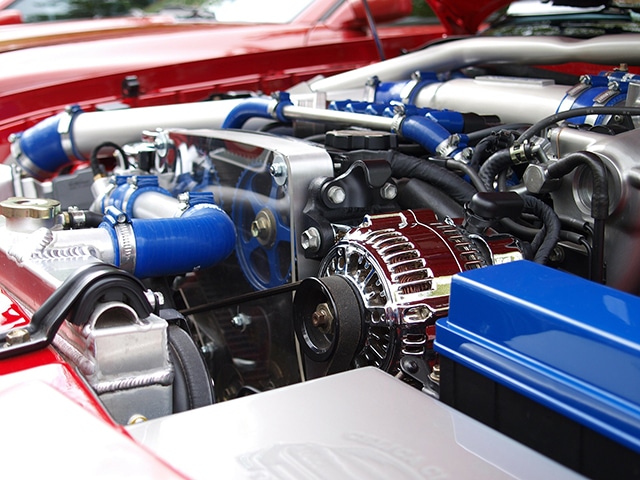Autonomous vehicles are one of the most exciting things in the world of technology right now. What was once a staple of science fiction movies is fast becoming a reality and it is sure to change the way that we drive forever. The technology is still in the early stages and there are a lot of kinks to iron out before they become widespread. There have already been stories of fatal crashes as people have ignored rules that state you must always have two hands on the wheel, regardless of whether the car is driving itself or not. Safety issues are amongst the primary concerns when it comes to driverless cars and governments are moving fast to try to catch up with the technology and put laws in place to prepare us for a time when driving your own car is a thing of the past.
But once all of those problems are resolved and we can be sure that the technology is reliable, it won’t be long until autonomous vehicles are everywhere. Conservative estimates predict that they will be widespread in the next few decades, but it could be even sooner than that. So, what does that mean for driving? These are some of the biggest changes that autonomous cars are likely to bring about.
Car Ownership
The issue of whether people will own their own cars or not is still unclear, but a lot of people predict that car ownership will be a thing of the past. Currently, our cars spend the majority of the time sitting in a parking spot, not being used. You use them to drive to work, then they sit all day until you drive home. Then they sit all night until you need it the next morning. You might use it more often at weekends but it is still only a small portion of the time. But an autonomous vehicle doesn’t need to wait for you to come back and operate it. It can drive away and pick somebody else up right away. That’s why people are predicting that car ownership will change and instead of having your own car, you will just order one to pick you up as and when you need it, in the same way that you might use an Uber. There is also potential for a subscription service so you pay a yearly fee for the use of a car. This will mean that there are fewer cars on the road, which is good news in environmental terms. However, not everybody agrees with this and there is an argument that driverless cars will actually increase car ownership for a number of reasons, like instant accessibility, holding personal items in the car, and lower maintenance costs.
Car Customization

Car customization is a big industry right now and it’s been growing steadily. People have more access to custom parts online, and access to more information on how to install them. People are also keeping their cars for longer so they’re more likely to apply cosmetic changes like personalised number plates, custom paint jobs, and new body kits, as well as performance upgrades to the engine. But how will that industry be affected when people no longer own their own cars? There is a case to argue that it will die completely because nobody owns a car that they can customize, but that is less than likely. What people are forgetting is that owning and customizing a car is a hobby for a lot of people and, while they might use an autonomous car for their daily driving, those people are likely to own cars still. What is most likely to happen is that car customization will become a more specialist industry and, as parts become more scarce, they will increase in value.
It’s also important to consider what will happen if predictions about an increase in car ownership come true. In that case, the car customization industry will boom because there will be more options for upgrading cars, especially when it comes to entertainment systems. When you no longer have to handle the driving, you have a block of time in which you can do other things, and that means that entertainment is likely to become a big part of the driving experience. Nissan has already announced a concept for an augmented reality driving system. In a manually controlled car, this system is focused on safety. It can take data from the sensors on the car and surrounding vehicles and translate them into an augmented reality display, in order to give you more information about the road around you and hopefully, make your driving experience safer. But they also teased some features for autonomous cars as well, like projecting images inside the car. Only time will tell what kind of technology will be implemented in autonomous cars but it is clear that the driving experience will be focused on entertainment and working, as people do on a commute using public transport, and that will mean more customization, not less.
Insurance

Insurance is another big question that people have about driverless cars and there are two main issues here. Firstly, if the drivers don’t own the cars, are they going to be liable for insurance? If the cars are owned by a company that rents them out, it’s likely that they will be the ones that cover the insurance, so that’s one thing that you won’t have to worry about anymore. The other major issue is, who is liable in the event of a crash? Currently, you can usually find somebody that was to blame for the crash, but if both cars are operated by a computer, how do you decide who is to blame and do the passengers hold any responsibility. This remains one of the biggest question marks around autonomous vehicles.
Ethical Issues
The question of who is liable for the crash is one of the ethical issues surrounding driverless cars, but there are some more serious ones to be dealt with. What happens if a car runs a person down and injures them? Can the passenger in the car be held accountable or will it be the company that owns the car? There is also the question of decision making, and this is the biggest problem that manufacturers face. If the car is faced with the choice of protecting the driver or a pedestrian, will it always choose the driver? How can a piece of software make these difficult ethical decisions?
At the moment, we can only speculate about how autonomous vehicles will change the way that we drive, but it is clear that there are a lot of ethical and safety issues to deal with before we find out.


